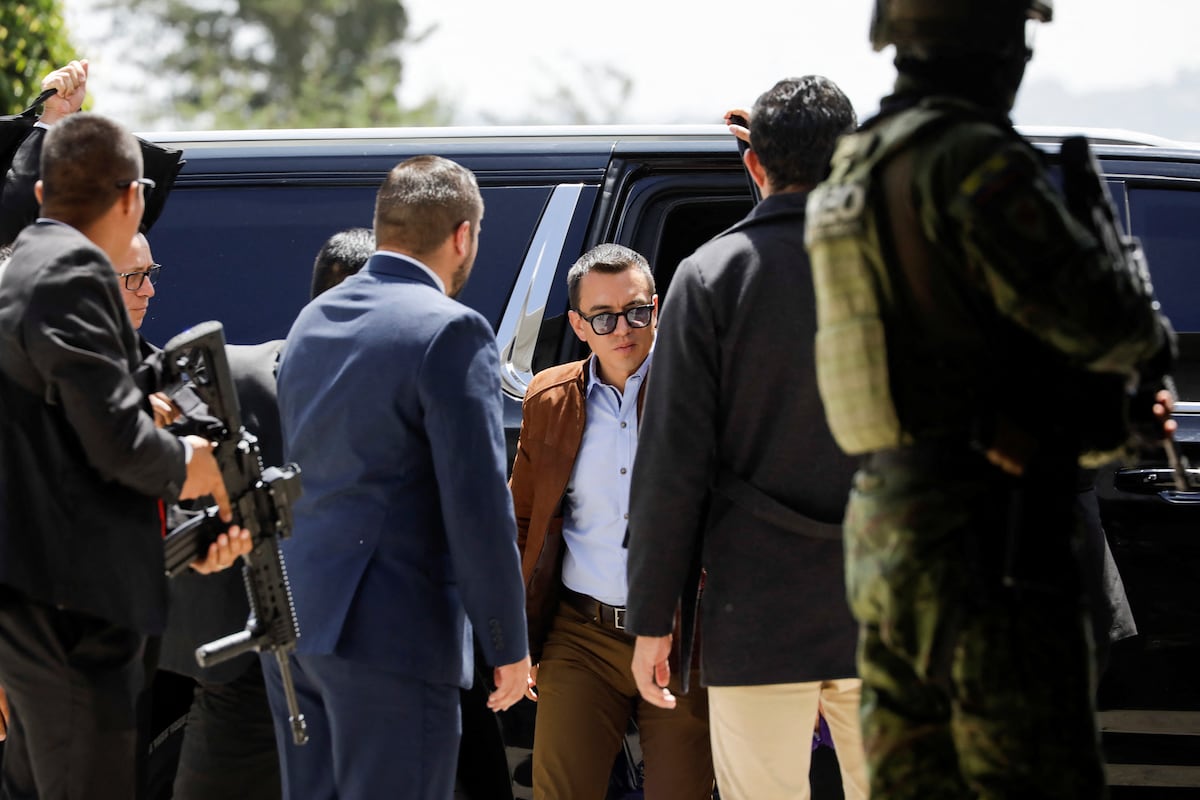The international community has strongly rejected the assault carried out by the president of Ecuador, Daniel Noboa, on the Mexican embassy in Quito to violently remove former Ecuadorian vice president Jorge Glas, who had taken refuge inside to evade a sentence for corruption. which he and the Mexican Government consider political persecution. However, the majority of Ecuadorians have seen the violation of the Vienna Convention on Diplomatic Relations, which enshrines the inviolability of embassies and also the right to asylum, as an act of justice.
60% have said they agree with what happened on April 5, according to the pollster Perfiles de Opinión. On the other hand, the 40 who disapprove show their concern that President Noboa’s decision has implied disrespect for international laws, could cause more conflict in the country and affect Ecuador’s international reputation. They even consider that it may be an abuse of authority, explained Paulina Recalde, director of Perfiles de Opinión, in an interview with a local media. “They are not talking about the actor in question; that is, of the former vice president, but rather how the image of the country looks to the outside,” adds Recalde.
The defense that the majority of Ecuadorians now make of the assault says a lot about the perception they have of the rule of law and even democracy. It is a society exhausted by the constant crises they face and which lead them to distrust the state apparatus. For example, just a few days after the assault on the Mexican Embassy, citizens endured up to ten hours a day of electricity outages without warning. Then they went to the polls to vote in a popular consultation – the second in a year – called by the current president. Every week there is an operation called by the Prosecutor’s Office to arrest public officials involved in corruption cases. While in the Legislature, political movements fight for power, the other functions of the State are constantly in crisis. For the political analyst, Jacobo García, these factors, accompanied by corruption and impunity, touch the most sensitive fibers of the people, “who prefer a strong hand instead of convoluted debates on international laws.” And there are precedents for them to lean towards the heavy hand.
There are public officials who were part of Rafael Correa’s Government who have fled to Mexico in the midst of the judicial process. Another removed the electronic ankle shackle to evade justice and fled to Venezuela. And, in conditions similar to that of Glas, there was the former Minister of Transportation, María de los Ángeles Duarte, who took refuge in the Argentine Embassy for two years, from where one day she escaped with the help of the diplomatic corps. “Noboa managed to represent well the defense of the country against what he considers a joke with human rights and international law,” says García.
These factors have contributed to a majority agreeing with the assault on the Mexican Embassy in Quito, rather than international law. “Ecuador has always been one of the countries with the least culture of democracy, it has little confidence in institutions, it believes that political parties are of no use, nor do they have an ideology. They have not internalized the usefulness of democracy on a daily basis,” says Jacobo García.
Indeed, Ecuador is not very enthusiastic about democracy. According to the latest Americas Barometer, it is the country with the highest percentage of citizens who would justify a military coup d’état if there is a lot of corruption. And the Armed Forces is the only institution that has the trust of a majority of Ecuadorians. This responds to actions that people were able to recognize at the beginning of the militarization of the streets after the state of exception that the president signed on January 9 in the midst of a wave of violence. The uniformed men published on social networks how they subdued the detainees, some of whom were recognized as criminals who extorted in neighborhoods and produced more violence in their sectors. “If for the first time they see them subjugated by the most valued institution, this imaginary is created that the military defends the people,” says García. “Is it democracy? It is difficult to define it for those who live through a crisis like the one in January, and that is why they say they prefer a military government to something that does not work,” he adds.
That is why one of the president’s strategies is to govern hand in hand with the military. Although that has not meant for the president to maintain the high popularity ratings that he enjoyed at the beginning of his administration. The latest surveys also reveal a sharp drop in Noboa’s valuation. From the 80% he had in January, he dropped to 74% in March and is now trying to maintain 58%, and more than half of the population considers that the country is going in the wrong direction, according to the Perfiles de Opinion.
